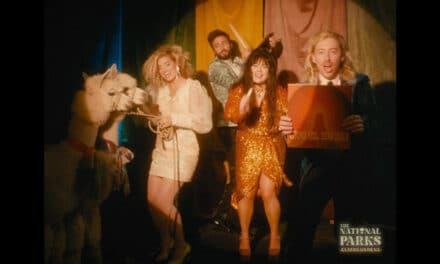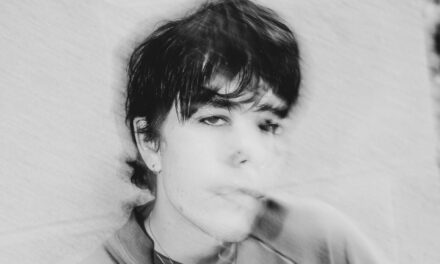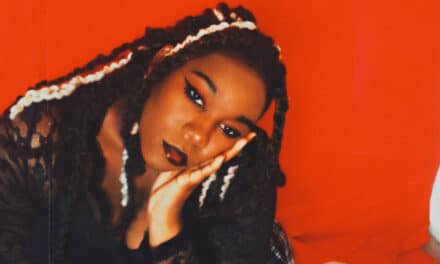Photography Credit: Kevin Hayland
With America’s Next Top Party, Def Jam duo Party of Two deliver their most honest, vulnerable, and expansive body of work yet. The record dances between satire and sincerity, grief and joy, past and future — capturing what it means to stay soft in a world that feels absurd. We sat down with the pair to unpack irony, ego, resilience, and the liberating art of letting go.
Mundane Magazine: America’s Next Top Party feels both playful and radical. There’s satire in the title, but also a deeper social lens. How did you balance irony with sincerity while making this record?
Party of Two: Life itself feels like satire right now. You turn on the news and it barely feels real — it’s funny, terrifying, absurd, all at once. So finding that balance between humor and honesty came naturally. We didn’t have to force it; our reality already feels like that.
The past couple of years have been wild — you can’t make this stuff up. We wanted to capture that energy while also being vulnerable and telling our story.
Mundane:You’ve called this your most honest project yet. Was there a specific moment when you realized you had to stop hiding and let the truth spill out?
Party of Two: It actually started with our rebrand. When we dropped the EP We Owe You an Explanation, we decided to stop hiding behind anything. We opened up about what we were really going through — both personally and as artists — and it felt healing, not just for us but for our fans too.
Seeing how people related to Home for the Best really shifted our mindset. It taught us that you don’t have to give people what they want — you give them who you are.
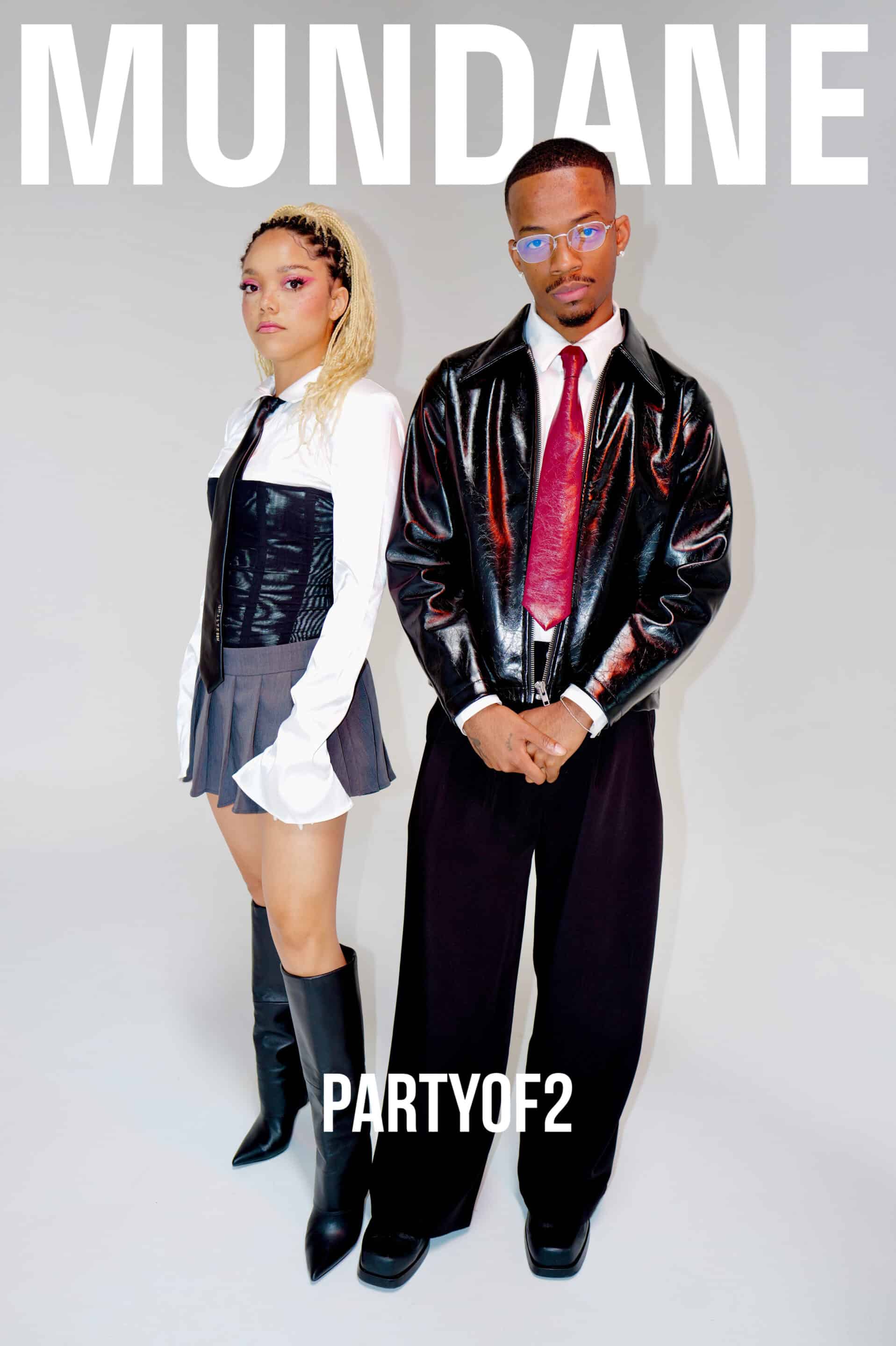
Mundane: The album moves through grief, joy, rage, and release. How do you personally navigate those contradictions, and how did they shape the sound?
Party of Two: Honestly, therapy helped a lot. We’ve learned to accept every emotion as it comes. Sometimes life is falling apart and something beautiful is happening at the same time — and we wanted the music to reflect that duality.
We played with that contrast sonically, too. Some of the saddest lyrics sit over upbeat production. Some happy moments sound dark. We leaned into feeling rather than genre.
Mundane:You both talk about creating a judgment-free zone in a world obsessed with image and perfection. How do you protect that space — for yourselves and your community?
Party of Two: Vulnerability is key. Take our track Friendly Fire — we literally wrote down our insecurities, swapped lists, and then used those to “diss” each other in the song. It sounds playful, but it’s really self-deprecating and honest.
The studio is our safe space. It’s usually just us and our engineer — no pressure, no posturing. In real life, everyone curates what they show online, so it feels powerful to open up fully through music.

Mundane: “Feel Love,” produced by Kaytranada, is already a fan favorite. How did that collaboration come about?
Party of Two: When we signed to Def Jam, Tunji asked who was at the top of our dream list, and Kaytranada was literally number one. We’ve been fans for years.
One night, Tunji sent over a pack of about 200 Kaytranada beats — we stayed in the studio until sunrise just making ideas. A few days later, we got the call: Kay wanted to work. That session came together so naturally; the song basically made itself.
We wanted it to feel like that moment at a party when you lock eyes with someone you’ve never spoken to — the instant chemistry, the imagined future. It’s dreamy, electric, and a little dangerous.
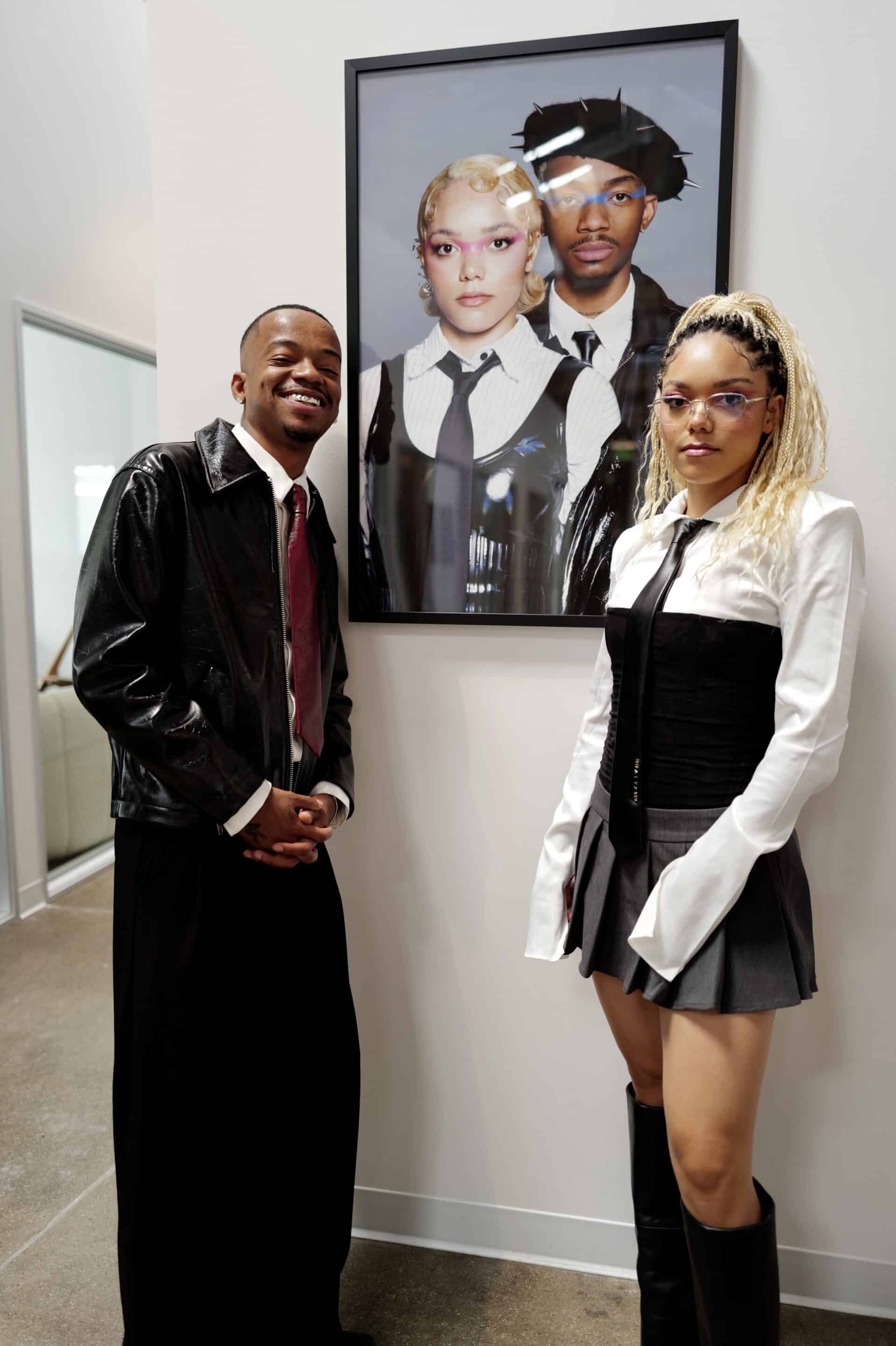
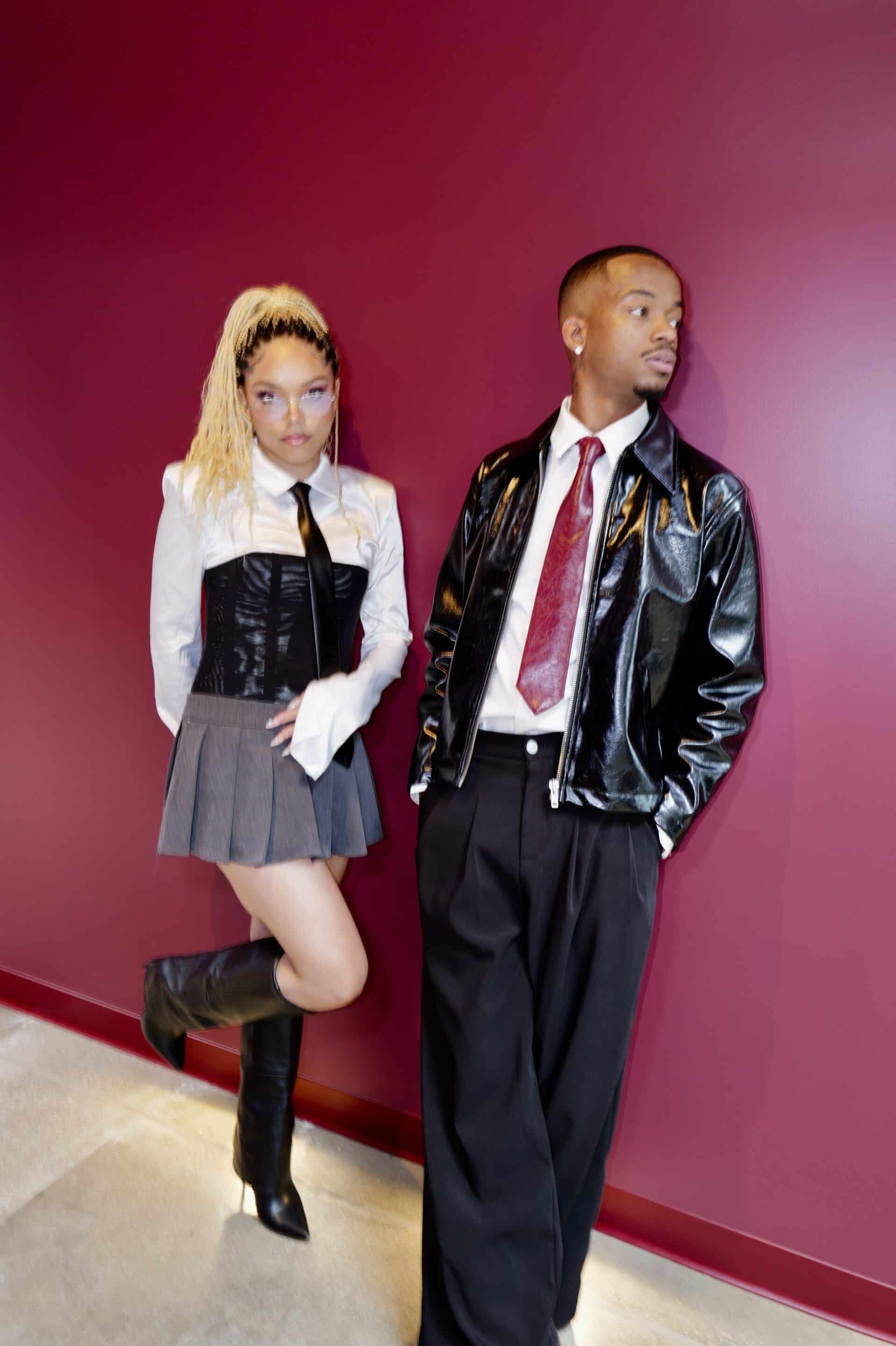
Mundane: Your chemistry as a duo is undeniable. How do you navigate ego, vulnerability, and creative differences without losing the joy that defines your work?
Party of Two: Ego’s not allowed in the studio. That’s the rule — leave it at the door. We’ve been best friends for fifteen years, so we’ve learned how to disagree without breaking the connection. People assume good chemistry means you agree on everything, but it’s really about respect and knowing when to compromise.
We push each other — sometimes hard — but always with love. That’s why it works.
Mundane: Duality runs through everything you do — masculine and feminine, light and shadow. How does that show up beyond the music?
Party of Two: It’s everywhere — from the way we dress to the films we love. We balance each other out naturally.
Culturally, vulnerability gets labeled as “feminine” and bravado as “masculine.” She helps me open up; I push her to take up space. That constant exchange keeps us evolving — as people and as artists.
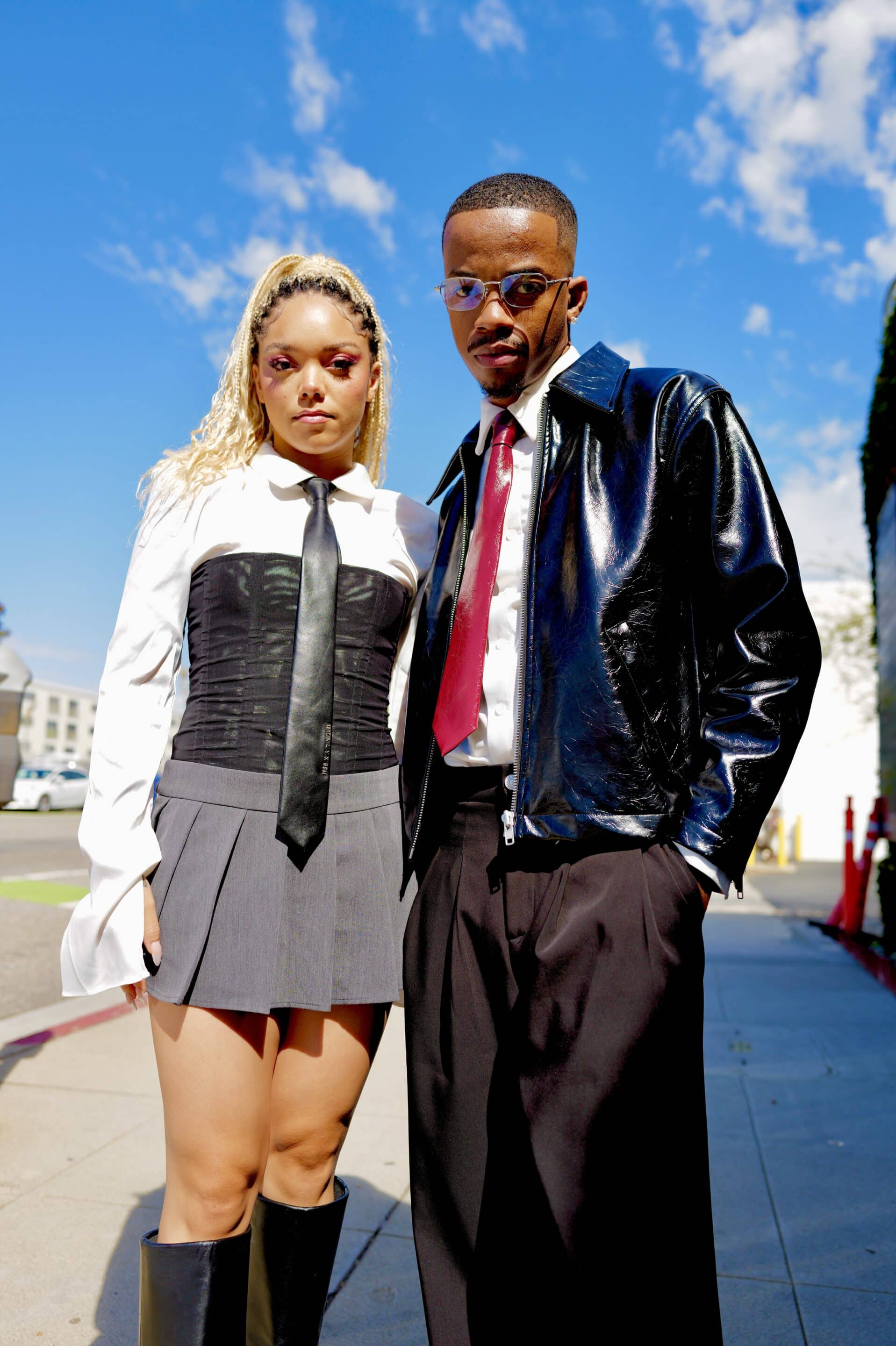
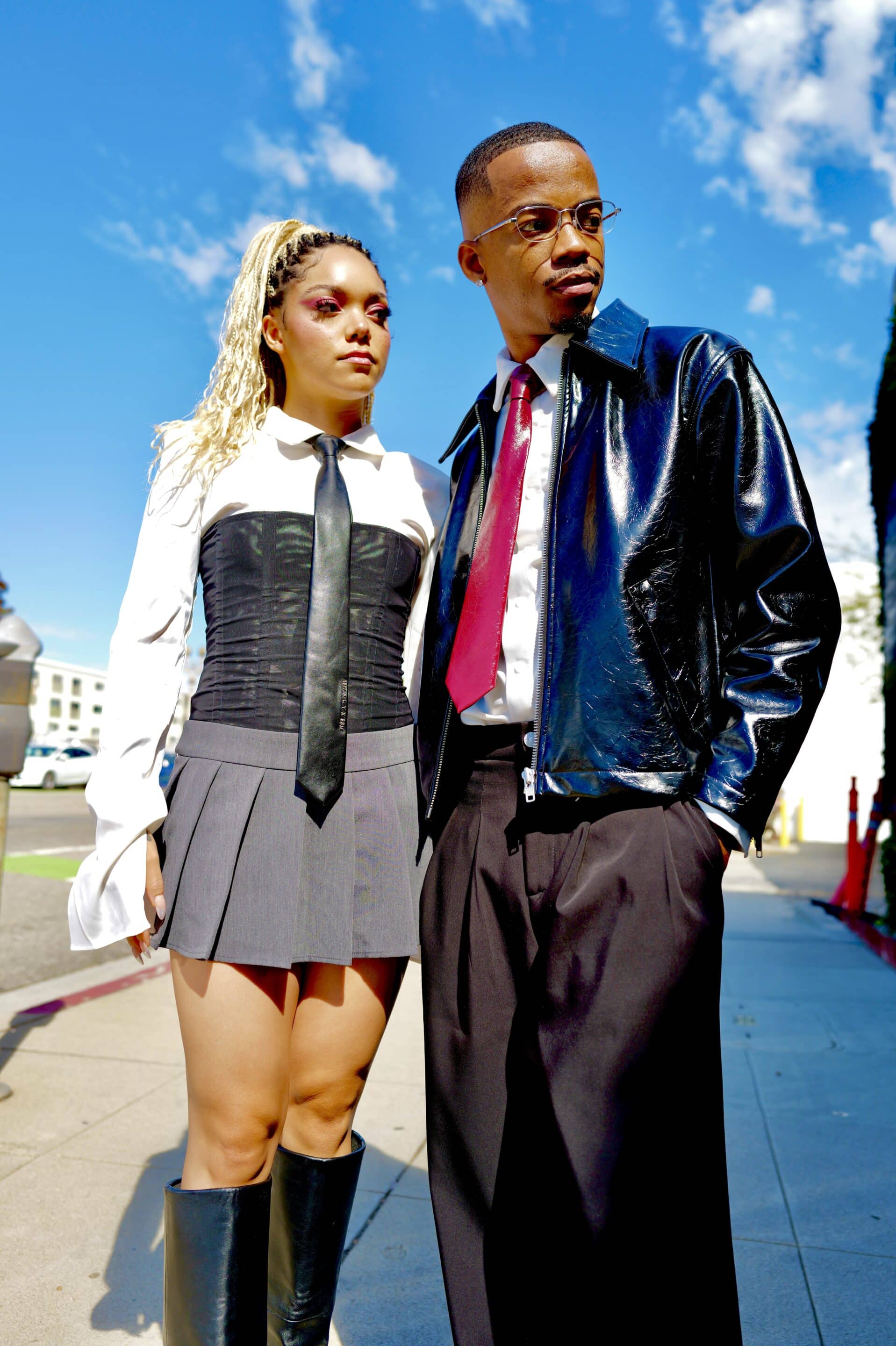
Mundane: The album explores resilience and healing. What does healing look like for you right now?
Party of Two: Music is the healing. We don’t release songs unless they’ve done something for us first. This project came out of a really painful period — transitioning from a trio to a duo — but it turned into the most cathartic thing we’ve ever done.
Usually we’d be anxious before a release, wondering how people will react. This time, we just feel grateful. The album already did what it needed to do: it healed us.
Mundane: Sonically, the record feels nostalgic and futuristic all at once. What does the future of Party of Two sound like?
Party of Two: We honestly don’t know — and that’s exciting. We’ll always draw from old-school influences, but we never want to make something that sounds like today.
Our goal is timelessness. If you can play it 100 years from now and still feel it, that’s a win.
Mundane: You’ve said this album represents freedom. What are you freeing yourselves from?
Party of Two: From the idea that our dreams have to look a certain way. We used to cling to this picture of “success,” but this project taught us to embrace the unknown.
We let go of doubt, of limitations, of caring too much about control. At the end of the day, it’s just music — and that realization is incredibly freeing.


